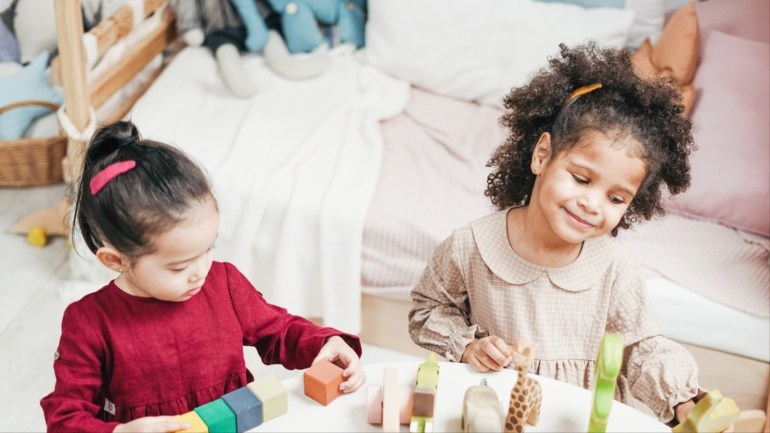Emotions are usually tested and learned with people in a social environment, for this reason some parents are concerned about virtual or distance education, which has been imposed with the start of the new school season in places that have seen a rise in cases of Coronavirus.
Distance education may hinder the social and emotional development of children in school, but more than that it may affect their academic path. And the experts unanimously agree that this is not a small matter.
For children, even in pre-school, social engagement with their peers is crucial for them to develop a sense of self and their world as well, according to Massey Grimm, a psychologist specializing in working with young children.
But there are ways parents can turn to facilitate their child's all-round growth at home, according to many experts. School is not the only way, though it is an important way to teach social and emotional skills.
What is social and emotional learning?
Social and emotional learning encompasses many complex concepts, and is a lifelong process that begins with learning about your identity and emotions, and then learning how to fit into the larger and broader world.
Experts have identified 5 core competencies to achieve this:
Self-awareness - Self
-management
- Social awareness
- Responsible decision-making
- Relationship skills
It's possible that the child will not reach what is perceived as typical given the circumstances, but if the parents notice some growth that's a good thing, 'Calella Lawrence, a professor in the School Psychology Program at the University of South Florida, told the Los Angeles Times.
Several experts said that learning to manage your emotional state is crucial, and Grimm, who is also a professor of clinical psychology, said that when parents feel anxious they pass on this energy to their children, and they are very sensitive to it.
Stick to a schedule
With the absence of contact with peers and adults outside the home, and in order to correct behavior and to be a model for them, parents need to be more aware that they are a role model, and for younger children, parents can simulate the interactions they might get from children of their age to teach important social concepts, such as sharing and learning How to play fair.
Parents can do the job of a teacher by constantly talking to their children as a way to make sure they have an outlet to express their fears, frustrations, and joys.
Sometimes parents may get simple answers like "I'm upset because I can't see my friends," but over time this can lead to additional conversations. In addition to asking children about their condition, you can ask what exactly they need.
Experts agreed on the benefits of establishing a routine for children receiving their distance education, as this creates a sense of return to normalcy and provides a sense of emotional security.
This means not sleeping more at different times every night and spending half the day in pajamas, things that some parents reported happened in the spring when distance education was a solution amid the pandemic.
Plan ahead
Parents don't have to wait until their children are in distress to try to come up with a solution. Instead, they can think in advance of strategies their children can work on.
Justina Schlandiense, director of field education at the Foundation for Academic, Social and Emotional Education, recommends making a list of what they can do when they're stressed, such as going for a run or playing with each other. This, she said, can help children learn effective ways to manage their emotions, a key aspect of social and emotional learning.
Some parents may consider expanding the quarantine circle to include another family who is following similar health precautions.
Play therapy
Massey Grimm specializes in what is known as play therapy, which is a way to teach young people how to recognize, identify, categorize and organize their feelings using toys.
An adult can talk about their feelings and emotions, ”says Grimm.“ But kids can't do that, you can't ask a 3-year-old about his feelings. That's why you use toys, metaphors and games to speak in their language. ”
She adds that parents who have enough time and money can learn the basics of play therapy through something called parenting therapy.
Acknowledging that it takes great privilege to access it, Grimm stresses that parents can still learn a lot through books and online resources.
Anxiety is a duty
Experts said mood changes, disturbed behavior, lack of attention and some physical complaints, for example headaches, stomach pain and sleep disturbances, are possible signs that a child is suffering and might need additional support.
There are developmental norms that parents should be aware of. Children tend to learn social and emotional skills over a certain timetable.
However, individual circumstances - including the gender of the parents, socio-economic factors, and a child's temperament and ability - can have a significant impact on social and emotional development. And some babies will inevitably develop faster or slower than usual.
Hire teachers
According to Lawrence, parents don't have to go this route alone. They should communicate with teachers and other education professionals, who can generally provide advice, in addition to providing some guidance.
Lawrence says children's teachers are resources to help with work and speech, and that parents can reach out to them to learn about the social and emotional programs their school actually offers.

